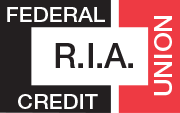QUICK WAYS TO CUT YOUR DEBT
How to reduce your debt fast.
According to a recent study, the average American has about $104,000 in debt. That includes mortgages, credit cards, personal loans and more. If you’re knee-deep in debt, there are ways to dig out quickly. Try some of these methods below.
1. Choose a Strategy
There are two main ways to pay down debt: The debt avalanche method and the debt snowball method. When dealing with your debt, it’s best to pick a specific strategy, not just “wing it.”
• Avalanche. The avalanche method involves paying down your debts starting with the highest interest rate first.
• Snowball. The debt snowball method is when you pay down your debt from the smallest amount owed to the largest.
We recommend the avalanche method, but the important thing is to pick the strategy that you will stick with.
2. Trim Your Budget
Once you have identified how you’re going to pay down your debts, it’s time to look at your budget.
• Cut Spending. Go through and reduce discretionary spending as much as possible. Remember, this is temporary. When your debt is eliminated, you can add back some of those items if you wish.
• Find Money. Use that extra money to pay down your debts each month.
3. Consider a Card
If your debt is mostly tied up in high-interest credit cards, consider opening a balance transfer card. A balance transfer card may offer you 0 percent interest for a small amount of time (usually 18 months). You can then pay down your debts without having to deal with the interest rates. Just make sure you can pay down your debts within the introductory timeframe.
Do One Thing: Cut way back on unnecessary spending while paying down debts.
Article provided by
TIPS TO MAKE SAVINGS AUTOMATIC
How to automate savings.
Automating your savings is not only smart, it’s a great way to provide a financial safety net and build wealth. Here are some ways to automate your savings so you’re in the best possible financial position.
Split it Up
One way to automate your savings is to take advantage of something called a “split deposit.” As the name suggests, this means when you are paid via direct deposit, your check is split in two. One part of your check goes into your checking account and the other part goes into your savings account. This is the old “set it and forget it” method. When you are automatically saving, you don’t have to worry about manually doing it during the month.
Auto Transfers
Another way to automate your savings is to set up auto transfers from your checking into your savings accounts. You can use this method if your employer doesn’t offer the split check option. Just log onto your bank or credit union’s site and set a date and amount that would automatically be transferred from your checking to your savings each month. Done.
Max Your 401(k)
If your company offers a 401(k), make sure you are using it. That means asking your employer to withhold a certain amount of pre-tax money to be deposited into your 401(k) plan every month.
Note: If your employer matches 401(k) contributions, aim to contribute enough to get the entire match.
Do One Thing: Set up either a split check or an auto transfer so that you never have to worry about saving enough each month.
Article provided by
WHAT YOU NEED TO KNOW ABOUT ESTATE PLANS
Here are some things to consider before you set up an estate plan.
You might think of estate planning as only something that wealthy people need to worry about. That couldn’t be farther from the truth. Everyone should have an estate plan. Why? Below we’ve answered some of the most common questions about estate planning.
What is an Estate Plan?
An estate plan is a set of documents that dictate what happens to your assets should you become incapacitated or die. It helps protect your loved ones from having to make difficult decisions.
What is Part of an Estate Plan?
An estate plan generally includes other documents — among them a durable power of attorney for finances, a medical directive, a will, and trust information (if you have trusts), as well as details on handling legal fees, and more.
• Will. A will allocates assets to loved ones in the event of your death and provides a vehicle where you can name guardians for minor children.
• Power of Attorney. A power of attorney (POA) is a legal document that designates who is responsible to act on your behalf if you become incapacitated.
• Medical Directive, also known as an advance directive, is a written legal document that outlines your healthcare wishes if you are unable to communicate or make medical decisions.
• Trust is a legal arrangement that ensures your assets go to the beneficiaries of your choice.
Do I Need an Estate Plan?
Yes, you should have an estate plan. An estate plan will help your beneficiaries and go a long way toward avoiding a potentially messy family situation.
How to Set Up an Estate Plan
You can create an estate plan with the help of an estate attorney. An estate plan contains many legal documents that require the help of a professional.
Less Expensive Option. Many online estate plan options include legal documents drafted by attorneys and online consultations with an estate lawyer.
Do One Thing: Contact a lawyer about creating an estate plan right away. It might seem unpleasant to think about what might happen when you’re gone, but this plan will help your loved ones immensely.
Article provided by
THREE COMMON CREDIT MYTHS DEBUNKED
Here’s the truth behind these common misconceptions
To say there is a lot of confusion surrounding credit is a vast understatement. We can’t tackle all of the fallacies at once, but we can start to dig into the big misconceptions that lead people astray. Here’s a look at three common credit myths — and the real truth behind them.
Myth 1: “You Have One Credit Score and One Credit Report”
Truth: You have multiples of both. “You have many credit reports, although we tend to focus on those housed by the “Big 3” credit bureaus, Experian, Equifax, and TransUnion,” says credit expert John Ulzheimer. Your credit score is not included in any of those reports — and you have hundreds of different scores calculated for different purposes. Auto lenders want to look at a score that focuses on how likely you are to repay a car loan. Mortgage lenders want to do the same but for home loans.
A helpful tip is to think of your credit report as a school paper, with your credit score being the grade on the paper. The lender is like the teacher. Each teacher determines how your paper will be reviewed, the grading scale used, and what constitutes a passing grade. Lenders determine what scores to use to analyze the information in your report and what score you need to qualify for a loan. So, when you hear people say things like “My score is 750”, that only refers to one of their scores from one of their credit reports.
Myth 2: “My Credit Score Will Keep Me From Getting a Job.”
Truth: Employers can see a version of a credit report. But there are limitations. Employers may be able to obtain a limited copy of your credit report after you have given your permission, but they do not get your score with the report. They only have access to a limited report that excludes any information that would violate EEOC regulations.
How Can This Impact You?
According to the National Association of Professional Background Screeners, 25 percent of HR professionals use credit or financial checks while hiring for some positions, while 6 percent check the credit of all applicants. Your credit report can give an employer insight into your trustworthiness and personal responsibility. If your credit records have information about paying back large loans like a mortgage on time, that’ll show you are reliable. If your credit information shows a lot of late payments, that could indicate to employers that you’re not very organized or responsible.
Myth 3: “If You Always Pay Your Bills on Time You’ll Have Great Credit.”
Truth: Some people are under the impression that as long as you pay your bills on time, you’ll have perfect credit. Credit scoring systems certainly consider whether or not you pay your bills on time. In FICO and VantageScore’s credit scoring platforms, your payment history accounts for nearly half of the points in your credit score, 40% for VantageScore*, and about a third or 35% for FICO.
That means the other portion of the points in your credit scores have nothing to do with whether or not you make your payments on time. Rather, they measure your credit usage, credit age, recent credit, and mix of credit. “[So] yes, while you certainly have to pay your bills on time to earn and maintain great credit scores, there’s considerably more to it than just that,” says Ulzheimer.
*based on VantageScore 3.0
Article provided by
DOLLARS AND SENSE – FINANCIAL LITERACY 101
Budgeting and Savings Accounts
Recently, the R.I.A. team has begun delivering financial literacy webinars for military and civilians that are stationed on the Rock Island Arsenal and other military bases. They cover topics that empower viewers with the knowledge they need to make effective financial decisions. The first session covered budgeting and savings accounts.
As discussed in this webinar, a few tips for saving money are:
1. Create an Emergency Fund totaling 3-6 months of living expenses
2. Track your spending by creating a budget
3. Identify your needs vs. wants
4. Downgrade/cut services you do not need
5. Cut down on eating out/food deliveries
6. Save regularly by including savings as an item in your budget
HOMEBUYING AND SELLING WORKSHOP
Our mortgage team is hosting another homebuying and selling workshop next month. Attendees will learn crucial information on the homebuying process. Our mortgage team and experts in the field will speak on everything you need to know about homebuying and selling.
Join us to learn about appraisals, realty, and received helpful information from our loan officers.
WHEN:
WHERE:
Wednesday, April 30th
from 5:30 – 7:00 PM
R.I.A. Federal Credit Union
4343 Utica Ridge Road
Bettendorf, IA, 52722
Register by April 22, 2025
RIAFCU-workshop.eventbrite.com
800-742-2848
info@riafcu.com
Scan for more
information


COMMUNITY INVOLVEMENT

ANNUAL FOOD DRIVE
R.I.A. again participated in the annual food drive, benefiting our local food pantries. These organizations work tirelessly to end hunger in our communities. We enjoy supporting their mission.
R.I.A. GOLF OUTING BENEFITING THE HONOR FLIGHT OF THE QC
Summertime is coming and that means golf! This year marks the 10th Annual R.I.A. Federal Credit Union Golf Outing for Honor Flight, and we couldn’t be happier to share it with you!
WHEN: Friday, May 16th at 10 a.m.
WHERE: Byron Hills Golf Course
For information on sponsorship reach out to Julie Deporter at 563-484-5448, or jdeporter@riafcu.com.

MARTINI SHAKE OFF
R.I.A. sponsored and attended this year’s Martini Shake Off, benefiting HAVlife of the Quad Cities. HAVlife of the Quad Cities was established to shed light on lost potential in youth ages 10 to 15. Their mission is to help provide funds for children to be able to participate in camps or events that their families can’t afford. Ever popular, this event had a great turnout!

ANNUAL MARDI GRAS CHARITY BALL
Our very own, Steve, had the honor of being named Master of Ceremonies for this year’s Mardi Gras Charity Ball. Benefiting the Junior Board of Rock Island, the monies generated from the Ball allow the Junior Board to assist local organizations in providing quality programming and services to area youth. The JBRI supports child-related causes to ensure children have what they need to live a healthy and successful life.
JA BOWL-A-THON
R.I.A. participated in Junior Achievement’s Bowl-A-Thon again this year. We sponsored six teams to participate in the event. Together, we supported our community and created lasting memories.



Special Closings
Memorial Day
Monday, May 26
Juneteenth National Independence Day
Thursday, June 19
Independence Day
Friday, July 4
Remember, you can still access your credit union account on holidays and after hours with your R.I.A. FCU ATM/Debit Card, Mobile Banking, DANA or Internet Account Access. Sign up today!
